Issuing a General Certificate of Conformity (GCC) is mandatory for certain non-children’s (general use) products sold in the United States. Examples include carpets, apparel, and bike helmets.
In this guide, we explain when you need a GCC, the required information, and lab testing requirements.
Content Overview

FREE CONSULTATION CALL (US, EU & UK)
- Request a free 30-minute call with Ivan Malloci to learn how we can help you with:
- Find product requirements
- Certification and labeling
- Lab testing
What is a General Certificate of Conformity (GCC)?
The GCC is a document issued by the importer or manufacturer of some types of non-children’s products.
The GCC is essentially a statement from the importer or the manufacturer, guaranteeing (or certifying) that the product is lab tested and compliant with relevant CPSC and ASTM safety standards.
Note that you must issue one GCC per product.
Which products require a General Certificate of Conformity (GCC)?
The GCC is mandatory for bike helmets, bunk beds, mattresses, and a range of other products.
Here are a few examples:
- Apparel
- Button cell or coin battery packages
- Bicycle Helmets
- Carpets and rugs (large)
- Carpets and rugs (small)
- Special packaging
- ATVs
- Paints
- Bunk Beds
- Lighters
- Mattresses
- Bikes
- Pool drain covers
The U.S. Consumer Product Safety Commission (CPSC) provides a complete list of products for which a GCC must be issued.

Is a General Certificate of Conformity (GCC) required for all products?
No. You normally only need a GCC if you import or manufacture products listed on the CPSC website. For example, a GCC is usually not required when importing electronics, watches, jewelry, and a range of other products.
Is a General Certificate of Conformity (GCC) required for children’s products?
You need to issue a Children’s Product Certificate (CPC) when importing children’s products – not a General Certificate of Conformity (GCC).
The GCC format is similar to that of the Children’s Product Certificate (CPC). That said, the GCC is only applicable to certain products, while the CPC is mandatory for all children’s products imported and sold in the United States.
What’s the difference between a CPC and GCC?
The General Certificate of Conformity (GCC) is only required for certain non-children’s products, such as bicycle helmets, bunk beds, and mattresses. The GCC is not required for other products.
The Children’s Product Certificate (CPC) is mandatory when importing all types of children’s products.
What information must be included in the GCC?
The CPSC provides GCC samples on its website. Here’s a summary of the information you must include when issuing a GCC:
1. Product name and description
2. List of applicable CPSC safety rules and ASTM standards
3. Your company name
4. Contact details: Mailing address, e-mail address, phone number
5. Name of the person holding the test report
6. Date (month, year) and place (city, country) of production
7. Date (month, year) and place (city, country) of product testing
8. Third-party testing company, contact person, e-mail, phone number, and address
Who issues the GCC?
The GCC is issued by the importer or the manufacturer. However, the latter is not applicable if you’re an Amazon seller or e-commerce company importing products from Asia to sell in the United States.
As such, you’ll likely need to create the GCC entirely on your own.
Further, you can either keep the GCC as a digital file (e.g. PDF) or print out a hard copy.
Do I need to get the GCC approved by a third party?
You don’t need to file the GCC or get it approved by the CPSC or a third party. That said, the CPSC requires that your GCC should be provided as part of your product and shipping documentation.
Here are two ways you can provide the GCC:
1. Submit electronically (e.g. a PDF) if requested by the US customs or other agency
2. Print a copy and send it to your customs broker as part of your shipping documentation
The main requirement is that you have a GCC ready by the time the products arrive at the port of destination. However, the GCC can be requested by the CPSC or other agency months or even years after the products have been imported and sold in the US market.
Does Amazon require GCCs?
Amazon can reach out to request a General Certificate of Conformity (GCC) if one is required by the CPCS for your product.
Keep in mind that Amazon, at least for the most part, doesn’t set its own compliance requirements – but aims to ensure that products sold on the marketplace comply with national product regulations and standards.
Do I need a test report to support the GCC?
In practice, yes. The CPSC states the following on its website:
1. The use of a third-party, CPSC-accepted laboratory to conduct testing pursuant to the product safety rules noted below is not a requirement for general use, or non-children’s, products. First-party testing, or testing from any qualified laboratory or test facility, can support a GCC.
2. Certification of non-children’s products must be based upon the results of a test of each product or a reasonable testing program.
In short, lab testing is required for the sake of verifying compliance with the safety standards and rules that cover the product. But, the testing procedure must not necessarily be carried out by a CPSC-accepted lab – which is required if you sell children’s products.
It is important to underline that third-party testing not being mandatory does not equal that testing in itself is optional.
Third-party testing
This refers to external labs that perform product testing as a service. This includes QIMA, Intertek, SGS, TUV Rheinland, and many other companies.
First-party testing
This refers to lab testing conducted by an importer or manufacturer. However, most importers or manufacturers don’t have the equipment or expertise required to carry out product testing.
As such, third-party testing is often the only option when issuing a GCC.
How do I know which requirements apply to a certain product?
For example, bike helmets must comply with the requirements outlined in Safety Standard for Bicycle Helmets – General Use. A closer look reveals that there are strict testing requirements concerning product safety:
(a) Peripheral vision. All bicycle helmets shall allow unobstructed vision through a minimum of 105° to the left and right sides of the midsagittal plane when measured in accordance with §1203.14 of this standard.
(b) Positional stability. No bicycle helmet shall come off of the test head form when tested in accordance with §1203.15 of this standard.
(c) Dynamic strength of retention system. All bicycle helmets shall have a retention system that will remain intact without elongating more than 30 mm (1.2 in.) when tested in accordance with §1203.16 of this standard.
You can also ask a qualified testing company to assess the applicable GCC-related standards and rules for your products. This is normally something testing companies must do as part of creating a testing plan for any product.
Can I get the General Certificate of Conformity from the manufacturer?
Most manufacturers outside the United States are not familiar with the format of the GCC and should not be relied upon to draft a GCC. Further, the CPSC also clarifies that the GCC must be issued by either a US manufacturer or an importer.
How much does it cost to get a GCC?
The General Certificate of Conformity (GCC) itself doesn’t cost you more than the paper it’s printed on. That said, lab testing can cost anything from a few hundred dollars and more.
General Certificate of Conformity (GCC) Sample
Product: T-shirt R012 (Size S, M, L)
Standard: 16 CFR Part 1610
Importer:
T-Shirt Wholesale LLC
300 Webster St, Oakland, CA
United States
Phone: 12345678
[email protected]
Holder of testing records:
T-Shirt Wholesale LLC
300 Webster St, Oakland, CA
United States
Phone: 12345678
[email protected]
Date and place of production:
October 2019, Dongguan, China
Date and place of testing:
November 2019, Kowloon, Hong Kong S.A.R (China)
Third-party testing company:
Vincent Cheng
Hong Kong Lab Tests Ltd
89 Nathan Road, Kowloon
Hong Kong S.A.R (China)
Email: [email protected]
Phone: 852 123 456


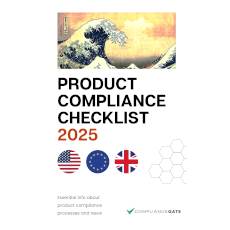
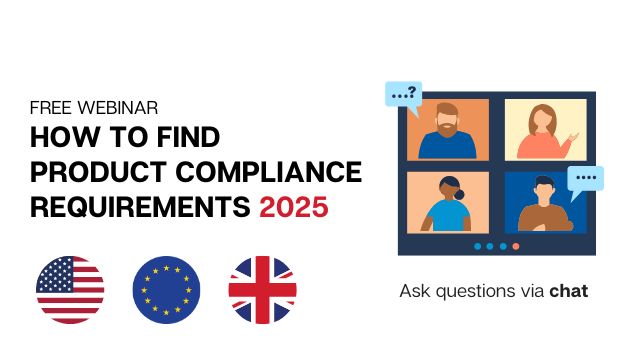
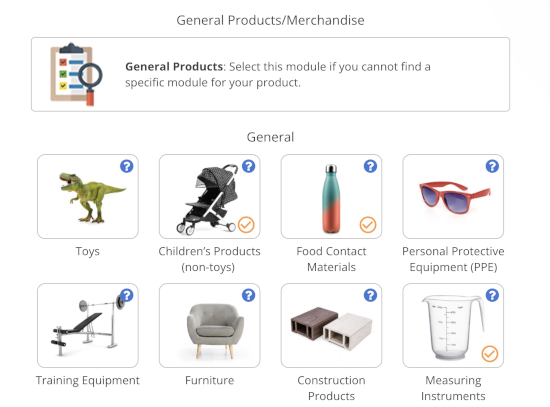








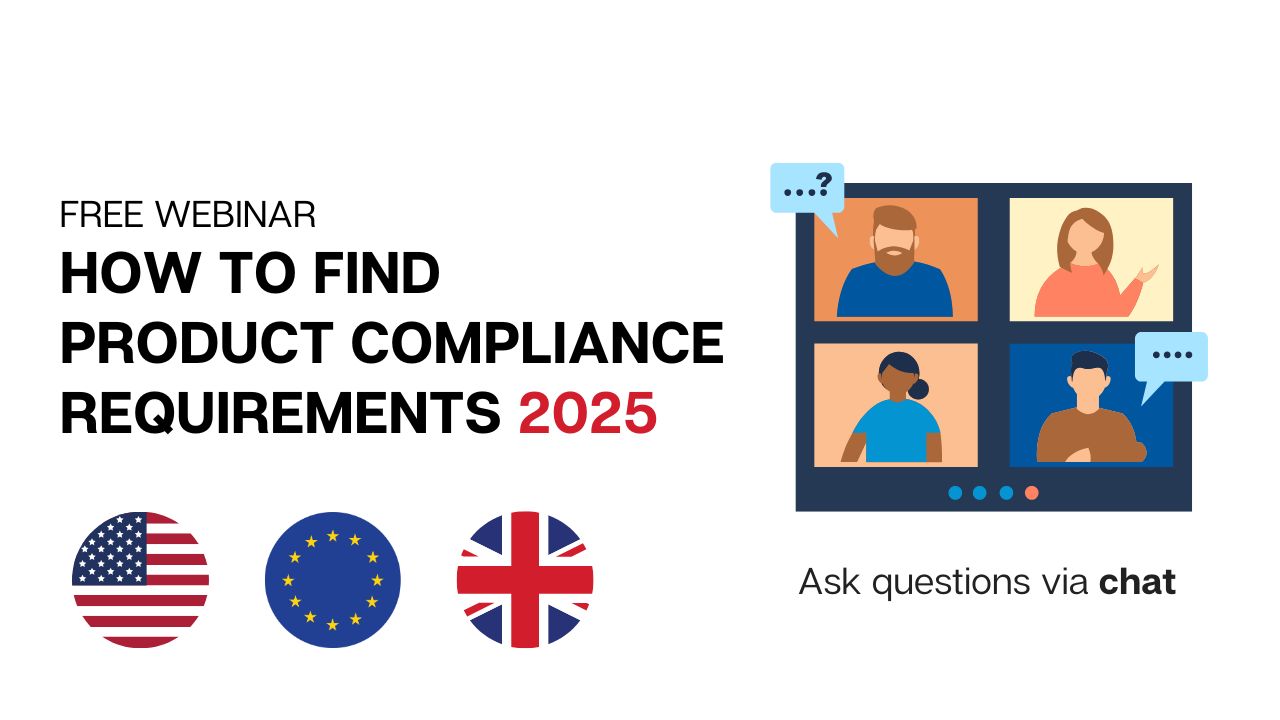

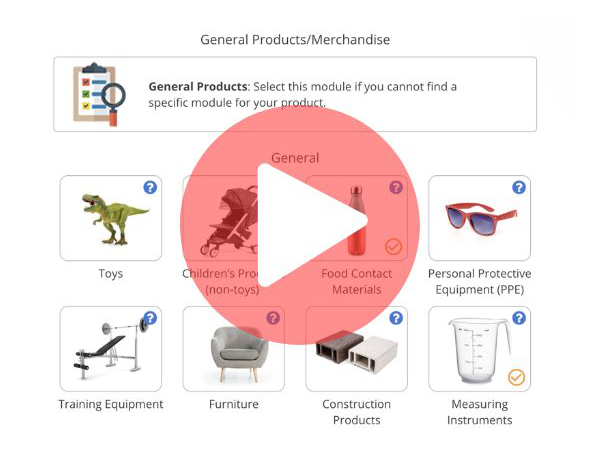
 Create compliance checklists for your product (US, EU & UK)
Create compliance checklists for your product (US, EU & UK) 20+ product certificate templates
20+ product certificate templates Create label files
Create label files Book product testing
Book product testing
Hi.
I sell brand name watches in Amazon and now i get this warning to do the lab testing and GCC for the Coin Battery,, i call a Lab and they want a lot of many for that,I buy all items in US from manufacturer but they don’t have any GCC Doc,How i can get this?
Lab testing and proper manufacturer ID is critically important for consumers when making a decision to buy a good product.
Hello
Greeting from Green Forever Ecom LLC
i have suffer issue in amazon i had send already inventory to amazon warehouse and now disappear listing the product of that Asin B076DPLHZY and brand name Flanax kindly share us the certifacate of GCC Of this product
Hi Guys,
really enjoyed this informative website article, thanks a lot
Peter R